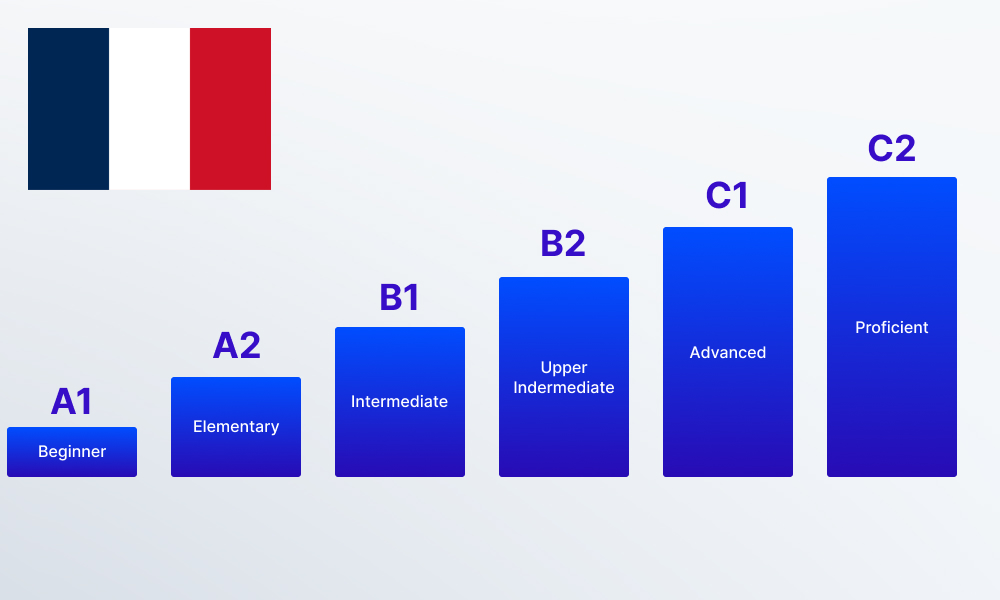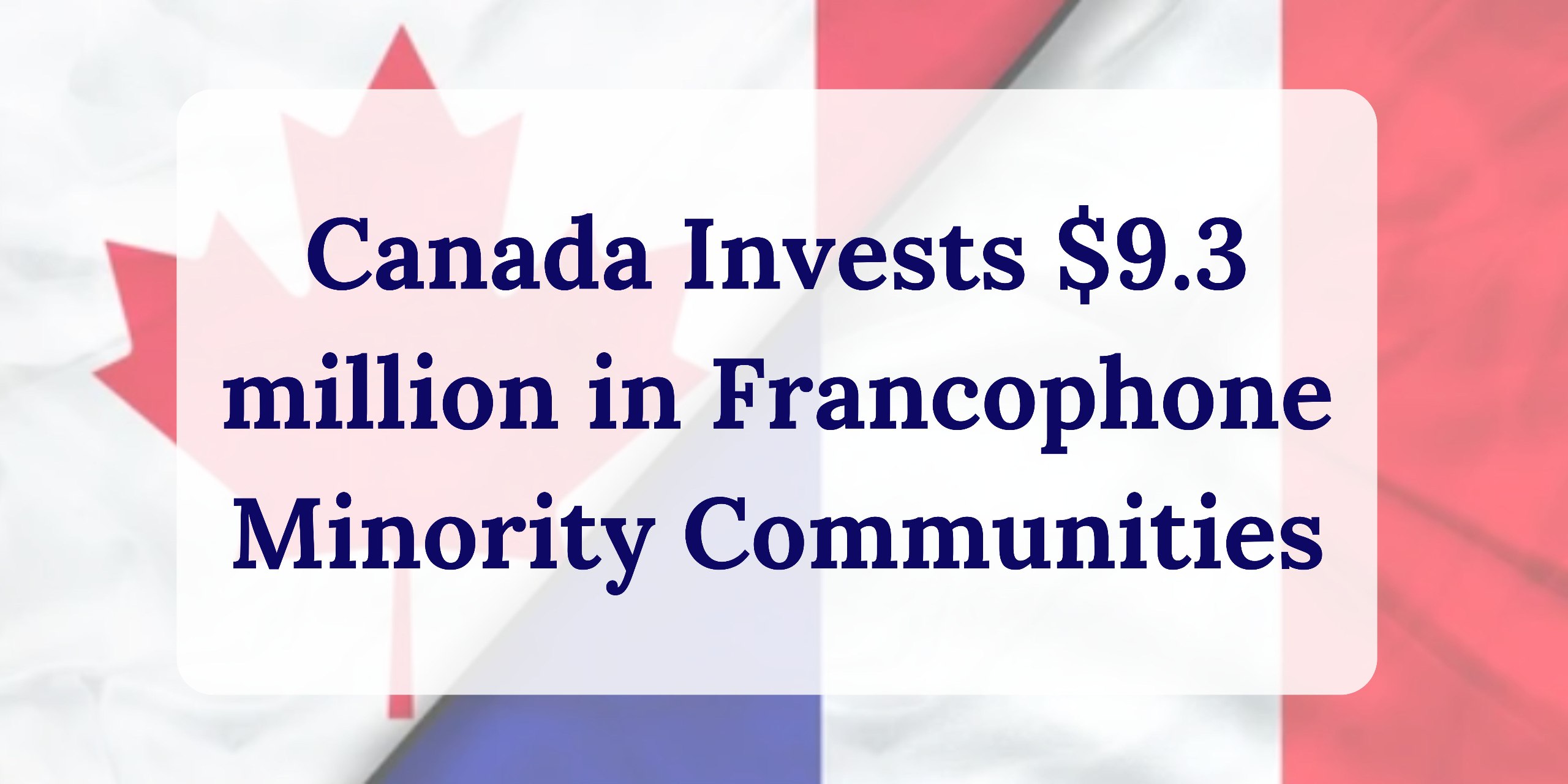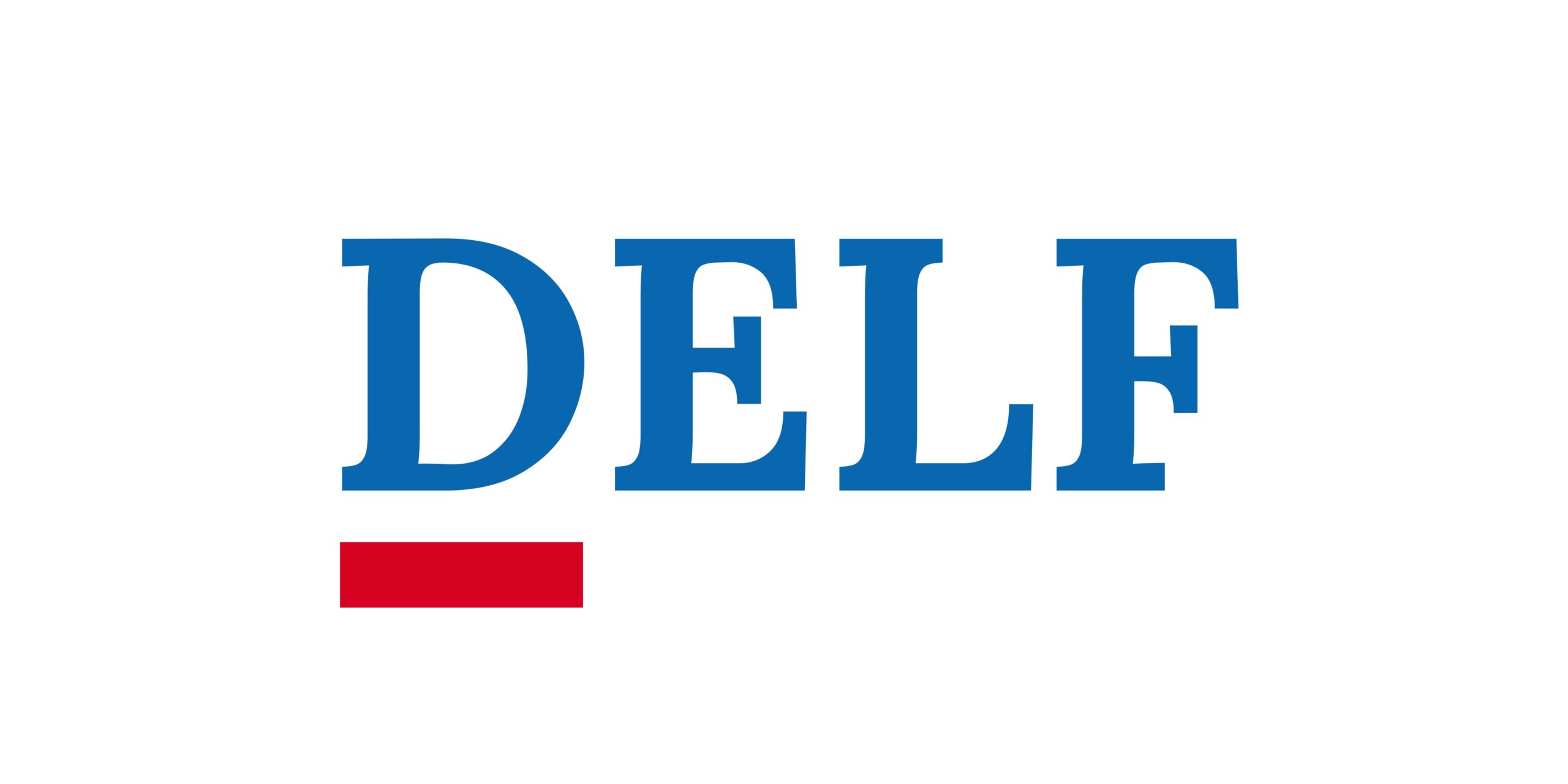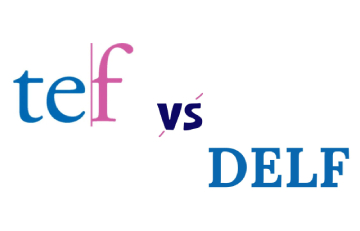
The Common European Framework of Reference for Languages (CEFR) defines six levels of proficiency in French, ranging from beginner to advanced. Here’s a breakdown of each level to give you a clear idea of what to expect as you improve your French skills.
A1 – Beginner Level (Niveau Débutant)
At the A1 level, you’re just beginning your journey in French. You’ll learn basic vocabulary and grammar, enabling you to understand and use everyday expressions. The focus is on simple communication for basic needs. Here’s what you can do at this stage:
Skills and Knowledge:
• Use simple greetings like “Bonjour” (Hello), “Merci” (Thank you), “Comment ça va?” (How are you?).
• Introduce yourself: “Je m’appelle [Your Name].” (My name is [Your Name]).
• Ask for directions: “Où est la gare?” (Where is the train station?).
• Understand simple instructions and phrases (e.g., “Turn left,” “Go straight”).
Example Sentences:
• “Je suis étudiant.” (I am a student.)
• “J’habite à Paris.” (I live in Paris.)
Use Cases:
• Shopping in a store.
• Asking for basic information (e.g., price, time).
• Ordering food in a restaurant.
Citizenship, Study, Work Requirements:
• For Canadian Citizenship and Quebec Immigration, A1 level is not sufficient. A higher proficiency is typically required.
• French Immigration: A1 level may be suitable for certain visa types or short visits, but generally not for residency applications.
Not sure where to start? Check your current level of French with a free test from eTalk School! Take the test now to find out your strengths and areas for improvement.
A2 – Elementary Level (Niveau Élémentaire)
At the A2 level, you can handle more everyday situations with basic communication. You can express personal information and describe simple aspects of your life, like where you live or what you do for a living.
Skills and Knowledge:
• Use basic vocabulary related to familiar topics (e.g., family, work, daily routines).
• Understand short, simple texts (e.g., advertisements, instructions).
• Make simple requests and ask questions in everyday settings.
Example Sentences:
• “J’ai deux frères et une sœur.” (I have two brothers and one sister.)
• “Je vais à l’école tous les jours.” (I go to school every day.)
Use Cases:
• Traveling and interacting in shops, hotels, or restaurants.
• Talking about hobbies, family, and routines.
Citizenship, Study, Work Requirements:
• Canada: A2 level is not enough for citizenship or permanent residency applications. However, it may suffice for some temporary visa purposes.
• Quebec: For Quebec’s immigration program, A2 is still below the required level for skilled workers but may be useful for some work or study situations.
• France: A2 level is generally the minimum for short-term work visas and residency applications, especially for students.
B1 – Intermediate Level (Niveau Intermédiaire)
At B1, you’re becoming more independent in your language skills. You can handle most situations that arise while traveling and can express opinions and ideas on a variety of topics.
Skills and Knowledge:
• Understand texts on familiar topics such as hobbies, school, or work.
• Communicate effectively in situations like ordering food, asking for directions, or dealing with problems.
• Use the past and future tenses to discuss events and plans.
Example Sentences:
• “Hier, j’ai visité le musée.” (Yesterday, I visited the museum.)
• “Je travaille dans une entreprise de marketing.” (I work in a marketing company.)
Use Cases:
• Participating in social and professional conversations.
• Describing experiences, dreams, and aspirations.
• Understanding basic news articles, ads, and social media posts.
Citizenship, Study, Work Requirements:
• Canada: B1 is a stepping stone, but more advanced levels (B2 or higher) are generally required for Canadian Citizenship and permanent residency.
• Quebec: B1 may be sufficient for certain job sectors, but higher proficiency is required for skilled worker programs.
• France: B1 is the minimum level required for most student visas and certain work permits.
B2 – Upper Intermediate Level (Niveau Intermédiaire Supérieur)
At B2, you have a solid command of French. You can discuss a wide range of topics, express complex ideas, and engage in spontaneous conversations without much effort.
Skills and Knowledge:
• Understand the main ideas of complex texts, including technical discussions in your field of expertise.
• Write essays or reports on familiar topics and explain viewpoints.
• Engage fluently in conversations on both personal and professional topics.
Example Sentences:
• “Je pense que les technologies modernes sont très utiles.” (I think modern technologies are very useful.)
• “Je peux parler couramment de mes projets futurs.” (I can speak fluently about my future plans.)
Use Cases:
• Writing formal emails or reports.
• Discussing work-related topics and professional goals.
• Participating in debates or group discussions.
Citizenship, Study, Work Requirements:
• Canada: B2 is a strong requirement for study and work visas, but a higher level (C1) may be required for citizenship or permanent residency.
• Quebec: B2 is the minimum level for skilled worker programs and many jobs in Quebec.
• France: B2 is the minimum level for long-term student visas and work permits in France.
C1 – Advanced Level (Niveau Avancé)
At C1, you are highly proficient in French. You can understand a wide range of demanding, longer texts and express yourself fluently and spontaneously in complex situations.
Skills and Knowledge:
• Understand virtually everything you read and hear, even complex texts.
• Express ideas and opinions clearly and precisely, using a range of vocabulary.
• Participate effectively in discussions, seminars, or professional settings.
Example Sentences:
• “Bien que j’aie beaucoup de travail, je trouve toujours du temps pour mes loisirs.” (Although I have a lot of work, I always find time for my hobbies.)
• “Le développement durable est crucial pour l’avenir de la planète.” (Sustainable development is crucial for the future of the planet.)
Use Cases:
• Engaging in professional meetings, seminars, or academic discussions.
• Writing formal reports or academic papers.
• Handling complex social situations with ease.
Citizenship, Study, Work Requirements:
• Canada: C1 is often required for higher-level professional positions and certain permanent residency programs.
• Quebec: C1 is typically the level needed for high-skilled jobs in Quebec and advanced university programs.
• France: C1 is usually required for work visas and permanent residency, especially for skilled professionals.
C2 – Proficient Level (Niveau Maîtrise)
At the C2 level, you have mastered the language. You can express yourself spontaneously and precisely in any situation, including abstract and complex contexts.
Skills and Knowledge:
• Understand and express complex ideas fluently and effortlessly.
• Use French for specialized and technical subjects.
• Participate in complex debates, academic discussions, or professional settings.
Example Sentences:
• “Il est impératif que nous prenions des mesures concrètes pour résoudre cette crise.” (It is imperative that we take concrete measures to resolve this crisis.)
• “L’évolution des politiques publiques doit s’adapter aux nouveaux enjeux économiques.” (The evolution of public policies must adapt to new economic challenges.)
Use Cases:
• Engaging in high-level academic research or professional work.
• Writing in-depth reports, articles, or books.
• Giving presentations or speeches in French with ease.
Citizenship, Study, Work Requirements:
• Canada: C2 is typically the highest level of proficiency and is useful for those seeking top-tier professional or academic roles.
• Quebec: C2 is often required for top-level executive roles and advanced professional work in Quebec.
• France: C2 is necessary for permanent residency and most high-level professional positions.
Sign up for a Trial Class today and start mastering French with experienced teachers and personalized lessons!











